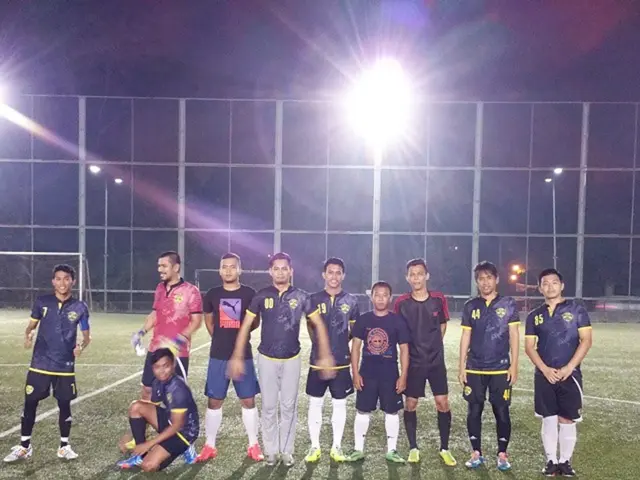Transforming Adversity into Harmony through Positive Parenting Strategies
Turning conflict into connection with your kids can be a game-changer in your parenting journey, especially during the challenging teen years. These tough times don't have to tear you apart; they can strengthen your bond if handled correctly.
Positive parenting, an approach that emphasizes building emotional bonds and guiding with kindness, can make a world of difference. This strategy is different from permissive parenting as it still maintains a leadership role while promoting emotional growth and self-discipline in children.
Emotional connection is key in positive parenting. It helps kids feel safe to explore and express themselves, which is essential for communication, problem-solving, and learning important life skills. By building trust and security, parents create a supportive environment that promotes emotional intelligence, strong relationships, and confident individuals.
However, parent-child relationships can be complex and challenging. Communication, expectations, and growth stages are essential components that influence these relationships. Understanding common challenges and addressing them head-on can help families build stronger bonds.
In times of conflict, the key is to recognize triggers, focus on common ground, and manage our reactions. By practicing empathy, open communication, and active listening, parents can turn conflict into opportunities for connection, deepening their relationship with their children.
Positive discipline, an alternative to punishment-based methods, focuses on growth and connection. It encourages parents to create a supportive space for learning rather than relying on punishment. By teaching children about self-awareness, empathy, and emotional regulation, parents help them handle emotions, build strong bonds, and grow resilient.
Building healthy boundaries while maintaining connection is also crucial in positive parenting. This balance can make your relationship stronger if done with care and empathy. By setting clear rules, respecting each other, and communicating openly, families can navigate the complexities of child development and family dynamics.
Remember, consistency is vital in positive parenting. It helps kids trust, take responsibility, and understand their feelings. By staying consistent and adjusting your ways as your child grows, you create a supportive environment that boosts your child's emotional health, self-control, and overall happiness.
In conclusion, turning conflict into connection is about understanding our emotions, talking and connecting better, and finding common ground, even in tough times. With the right strategies and mindset, you can make your family life more rewarding and fulfilling.
Sources:
- Positive Parenting Solution
- Empowering Parents
- Psychology Today
- Aha! Parenting
- Positive Discipline
- Dr. Laura Markham – Aha! Parenting
- Understood
- The Parenting Junkie
- Help Guide
- Very Well Family
- Positive Parents Education
- Positive Parenting Program
- The Montessori Life
- WebMD
- Positive Parental Guidance
- American Psychological Association
- Parenting Science
- PBS Parents
- Positive Family Alliance
- Greater Good Science Center, UC Berkeley
- Caring for Kids
- Positive Parenting Connection
- The National Parenting Center
- Positive Parent Education
- Power for Parents
- Positive Parenting Project
- Parenting Success Network
- Our Daily Bite
- Partnership for Children
- Positively Parenting Electric Buffalo
- Parenting for Brain
- Positive Parenting MOM
- The Positive Parenting Movement
- Positive Parenting Solutions for Divorced Families
- The Positive Parenting Alliance
- The Power of Positive Parenting
- Parenting Mojo
- Parenting NI
- Positive Parenting with a Purpose
- Parenting With Grace and Grit
- The Parenting Passport
- Positive Discipline Hawaii
- The Parenting Jungle
- Positive Parenting & Education Connection
- The Parent Education Network
- The Peaceful Parent, Happy Kids
- Positive Parenting Solutions Colombia
- The Parenting Cafe
- The Confident Parent Project
- Positive Parent Education Network
- Positive Parenting Plus
- The Healthy Practice
- Positive Discipline Association
- The Happy Child Company
- Positive Parent Education Academy
- The Self-Regulation and Emotional Competence Lab, York University
- Positive Parenting Connection (New Zealand)
- The Peaceful Family
- The Whole Brain Child
- The Parenting Mojo
- The Parenting Coach
- The Mindful Parent
- The Parenting Workshop
- The Mindful Mama Movement
- The Parenting Guy
- The Mindful Parenting Project
- The Positive Parent's Alliance
- The Mindful Parenting Collective
- The Parenting Revolution
- The Mindful Mama
- The Empowered Family
- The Mindful Parent Network
- The Parenting Village
- The Mindful Mama Society
- The Positive Parenting Project UK
- The Mindful Parenting Book
- The Taming of the Toddler
- The Mindful Parenting Roadmap
- The Parenting Journey
- The Mindful Parenting Method
- The Reflective Parent
- The Parenting Coach Institute
- The Mindful Parenting Quick Guide
- The Parenting Guide
- The Mindful Parenting Program
- The Parenting Experience
- The Mindful Parenting Handbook
- The Parenting Well
- The Mindful Family Coach
- The Mindful Parenting Course
- The Positive Parenting Plan
- The Mindful Parenting Revolution
- The Parenting Miracle
- The Mindful Parenting Prescription
- The Parenting Podcast Network
- The Mindful Parenting Toolkit
- The Parenting Project
- The Mindful Family Hub
- The Parenting Series
- The Mindful Parenting Summit.
- Positive parenting during the challenging teen years can transform conflict into connections, fostering healthier parent-child relationships.
- Understanding and respecting boundaries while promoting emotional growth, self-discipline, and communication are integral parts of positive parenting.
- Strong friendships and social skills result from early development that emphasizes emotional intelligence, problem-solving, and conflict resolution.
- Science-based health-and-wellness practices can provide valuable insights for parents who seek to promote a positive lifestyle in their child's development.
- Building trust and security with your child helps create an environment that encourages growth, strong relationships, and confident individuals.
- Consistency in parenting fosters a sense of trust, responsibility, and emotional health in children, promoting self-control and overall happiness.
- Practicing open communication, empathy, and active listening can lead to learning opportunities during conflicts, strengthening the parent-child bond and deepening relationships.








